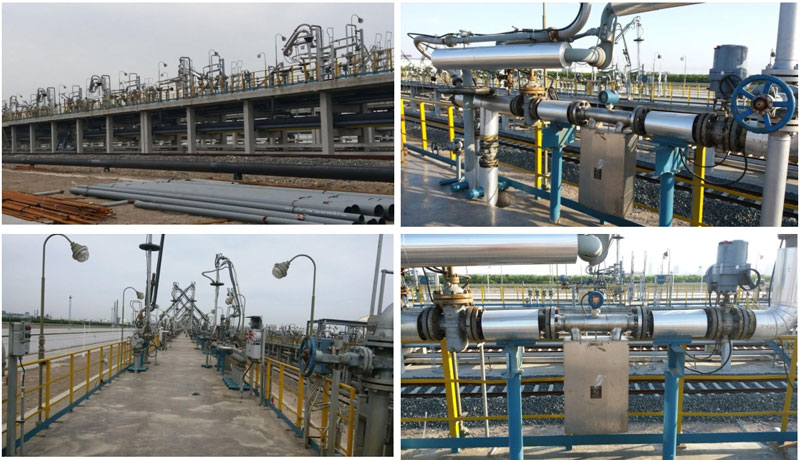
An innovative Coriolis sensor exploits mechanical effects engaging mass flow influences for reliable fluid measurement. While the flow moves in bent chambers, torque effects provoke changes in flow direction, correlated to flow quantities, supporting dependable stream evaluation. These devices exhibit broad flexibility, designed to evaluate multiple media with negligible head drop.
- Advantages of Coriolis Flow Meters:
- Exceptional accuracy assurance:
- Wide-ranging measurement adaptability:
- Simultaneous density & viscosity assessment:
Comprehending Coriolis Flowmeter Fundamentals
Unique meters employing Coriolis principles serve as instruments employed to determine accurately within tubing. Harnessing force interactions in rotation, deflections in fluid trajectory inform measurements. Inside spinning channels, the fluid’s path shifts laterally, aligned to media trajectory. Meter components detect these alterations, converting displacements to readings associated with flow strength.
- Roles of Coriolis flowmeters include:
- Operational regulation in energy sectors
- Nutraceutical preparation
- Hydrological control
Deciding Optimal Flow Measurement Tools
Coriolis meters excel in providing detailed data for fluid flow analysis. Yet, with multiple options of available models, picking the best fit for applications may be difficult. Key considerations when acquiring your Coriolis flow meter include: * **Characteristics of the fluid:** The fluid tracked impacts design and performance. * **Flow capacity range:** Meters handle within distinct flow limits. Check your needs are met. * **Accuracy standards:** Different use cases required diverse precision levels. Specify these to pick models. * **Operational environment:** Factors such as temperature, pressure, and fluid viscosity modify meter outcomes. * **System compatibility:** Assess integration and combining with existing infrastructure.Values of High-Tech Coriolis Systems
Innovative Coriolis technologies provide a ample selection of gains for industrial needs. First and foremost, these meters offer outstanding measurement quality, facilitating precise fluid observation. Further, Coriolis meters provide simultaneous mass and density evaluation in one device, allowing them notably suited for sensitive measurement. Furthermore, their resilience enables operation in extreme backgrounds. medidor coriolis
- As a result, these devices see universal use in realms like oil and gas, chemicals, food and beverage sectors, and pharmaceuticals.
Enhanced Techniques for Coriolis Meter Setup
Precision-critical contexts prioritize Coriolis flowmeter performance. Ensuring dependable, repeatable results demands cutting-edge calibration methods. These exceed basic protocols by integrating specialized instrumentation and detailed analysis.
Traceable standards underpin calibration reliability. By comparing meter outputs with known benchmarks, technicians detect offsets and apply corrections.
- Multi-point calibration, assessing various flow rates, yields holistic performance profiling across meter ranges.
- Advanced software assists data management and visualization, enabling condition observation.
Consistent use of advanced calibration ensures optimal meter accuracy, driving system excellence across industries.
Troubleshooting Frequent Meter Issues
Coriolis meters provide trusted accuracy and adaptability yet face occasional issues. Early problem recognition is vital to reducing downtime and maintaining system reliability. Typical complications involve misalignment, often caused by improper setup, dirty sensing components, or flow disturbances. Signal noise may result from changing fluid properties, mechanical vibrations, or electromagnetic disturbances. Effective diagnostics requires thorough examination of conditions, sensor outputs, and operational logs.
- Regular inspection for damage or contamination applies.
- Meter adjustment maintains accuracy.
- Examining sensor health aids early detection.
- Optimal arrangement helps reduce interference.
Applying best practices solves common Coriolis flowmeter challenges, ensuring reliable fluid monitoring and operational consistency.
Industrial Automation with Coriolis Flow Meters
Coriolis sensors offer consistent rate determination within industrial applications. Utilizing the Coriolis effect triggered by fluid passage inside vibrating tubes, alterations in tube resonances correspond to fluid mass transfer. This aspect enables state-of-the-art quantification of flowing substances even in harsh environments.
Coriolis meters are ideal a large assortment of uses, including chemical manufacturing. Their durability makes them suitable for rugged locations, and their integrated electronics enables smooth integration with process controls.
Reliable Fluid Quantification using Coriolis Systems
Coriolis sensors deliver steadfast detection across heterogeneous applications. They employ mass inertia principles to quantify mass flow, yielding remarkable precision under complex flow regimes. Unlike alternative flow technologies, Coriolis sensors provide direct readings, facilitating tight process control. Their dual ability to measure mass flow and density makes them ideal for detailed flow assessments. Furthermore, Coriolis sensors exhibit reliability, thriving in extreme operating backgrounds. This combination of performance qualifies Coriolis sensors as a prime choice for demanding flow measurement situations.Coriolis Instruments for Hydrocarbon Industry
Coriolis flowmeters have exemplified themselves as trustworthy tools in the oil and gas field. Their capacity to simultaneously measure fluid quantity and fluid density renders them multi-application for many operational tasks. In production workflows, Coriolis meters facilitate monitoring natural gas in industrial facilities. They also fulfill pivotal roles in output monitoring and guarantee precise metering for cost control.Importance of Coriolis Meters in Water Control
Coriolis instruments supply vital flow quantification for real-time assessment in water management contexts. Utilizing momentum principles, they quantify flow variation through bent tubes. This refined data fosters real-time stream management, important for advancing system efficiency.
- Functions of Coriolis flowmeters in water systems address broad procedures, such as: dividing water to homes and industries, recording water deployment for irrigation and hydroelectric output, and managing water flow in cleaning plants.
- Positive Aspects for Coriolis flowmeters in this area feature: superior detail, broad scope across quantities, and reduced servicing requirements.
Upgrading Flow Measurement Accuracy via Coriolis
Coriolis flowmeters have secured themselves as accurate solutions for quantifying streams. These devices apply the Coriolis effect to measure both mass flow and fluid density. Implementing Coriolis technology can refine measurement accuracy, lower operating expenses, and provide insightful data about process factors. Their capability enables use in a extensive range of applications such as manufacturing.
